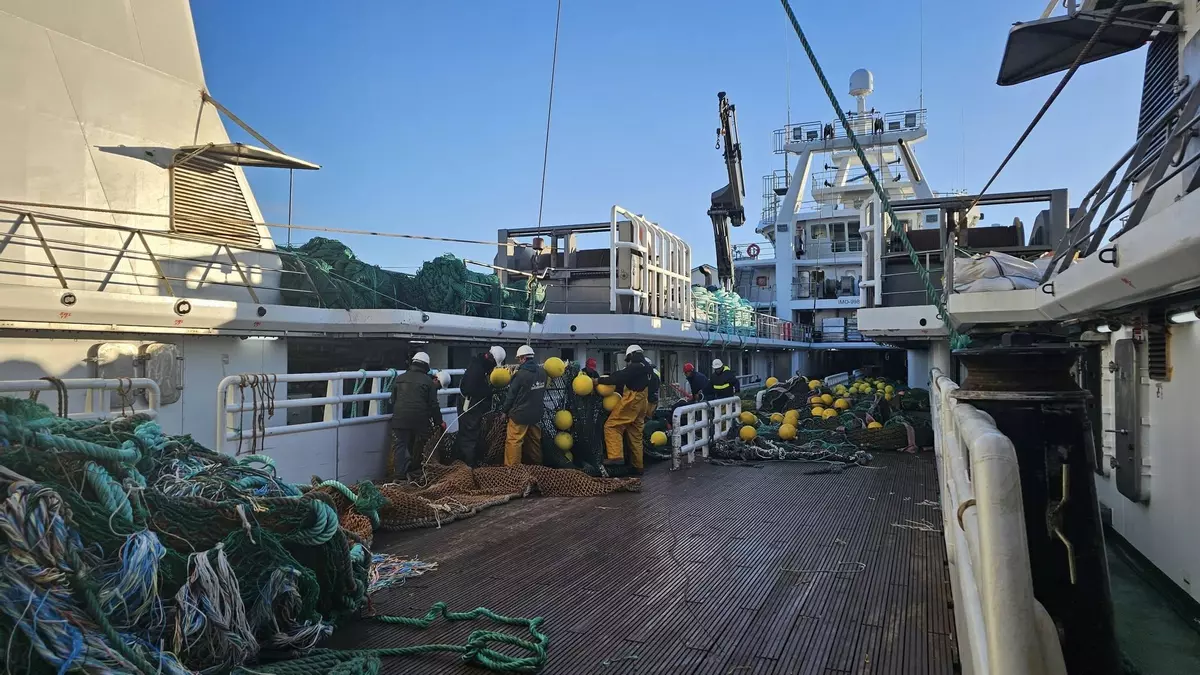The alarm among Spanish-owned fishing companies operating with illegal licenses from the colonial administration has turned into a crisis, resulting from overexploitation of fishing grounds and uncontrolled depredation on the outskirts of the Argentine Republic's Exclusive Economic Zone (EEZ).
Concern has grown among the Galician fishing fleet, which operates in partnership with companies based in the Malvina Islands, an alliance that Argentina considers a violation of national sovereignty.
According to Spanish press reports, the second fishing season of the year has begun with devastating results . "There are no squid," lament sources consulted by the Spanish media outlet Faro de Vigo , while vessel captains warn that "things look bad." This situation is a replica of last summer, when the squid harvest had to be abruptly canceled, leaving trawlers without fishing for 300 days.

The current situation not only affects the economic interests of companies, but also jeopardizes the viability of the colonial administration's main source of income . The sale of fishing licenses to foreign fleets is the mainstay of its economy. However, the continued decline in catches, which last year had already fallen to 47,475 tons, threatens an irreversible decline in this resource.
Two key factors explain this debacle. First, overfishing by the same fleets now suffering the consequences. Second, the indiscriminate predation carried out by fleets from China, Korea, Spain, and Taiwan, operating on the edge of Argentina's EEZ. This activity, which exerts unsustainable pressure on the migratory squid stock, is depleting the resource without respecting any international regulations.
While Galician fishermen and colonial authorities evaluate an "action plan" to reverse the situation, Argentina is witnessing how illegal exploitation and the lack of environmental regulation are bringing a natural resource that belongs to all Argentines to the point of no return.
The squid crisis is a testament to the environmental consequences of Britain's de facto policy in the South Atlantic and a reminder of the need to protect sovereignty and national resources in the archipelago.






